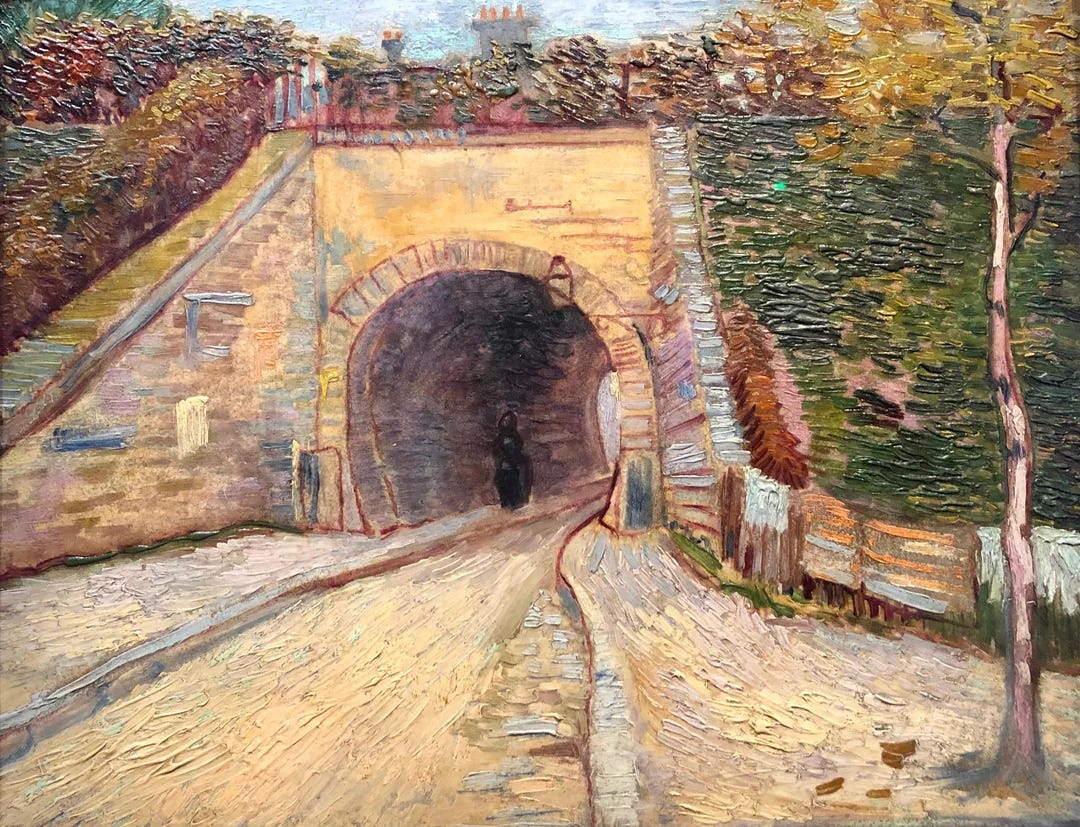When depression first claws its way into your consciousness, you frantically research everything you can about the condition in hopes of outsmarting it.
You get blood work drawn to try to make sense of how exhausted and out of it you feel.
The results come back normal.
So you browse Reddit forums, WebMD, ChatGPT—and they all give you the same spiel: try exercise, therapy, meditation, medication. These will help, but nothing’s a given. There’s no cure for the disorder, only treatments. As far as any form of instant relief goes, you’re shit outta luck.
You quickly realize there’s not much relatable writing on depression. This makes sense, given the varying nature of the illness. Everyone experiences depression differently, for different reasons, be it a blend of life stressors, genetics, or chemical imbalances. Truth is, no one really knows.
Severe depression nukes creativity and curiosity. I try to read around thirty books a year, but in the depths of my depression, I could barely make it through a page.
Major depressive disorder, or clinical depression, is diagnosed when the afflicted has suffered a particularly sinister array of symptoms for more than two weeks. We all get down from time to time, but MDD is a different beast entirely.
I felt empty. Hollowed out. Agoraphobic. Exhausted around the clock. Intensely indecisive. I lost weight, slept terribly, and felt at all hours like the bottom was sure to fall out. Feelings of shame and worthlessness—like you’re a burden to everyone who loves you—are hallmarks of depression. And I felt those symptoms too.
My head seemed sick and heavy with lead. A bug in the software. Like someone locked a knot in my brain and tossed away the key.
More than just a pervading sense of dread and hopelessness, depression saps your spirit, kneecaps your executive functioning, and blurs your memory. It drains the joy out of anything you’d typically turn to for respite, and makes every menial choice feel like a life-or-death decision. It’s no wonder J.K. Rowling dreamed up Dementors as a way to personify her battle with the illness. Depression mutes the vibrancy of color and sound.
Twenty-one million Americans every year are affected—close to 9% of the population—and over 280 million worldwide. Depression’s the leading cause of workplace disability. But it’s not socially acceptable to just lie in bed and be tended to. Few send flowers and cards. Like other mood disorders, depression carries a stigma akin to a modern form of leprosy. No one likes bringing it up.
I took a six-week leave of absence from work to power through the worst of it, praying that my second round of medication would finally take hold. When you’re caught in the thick of depression, you will do anything to find relief. Anything. Striking the right balance of medication and therapy, however, is a slow, exhausting process.
Most antidepressants take six to eight weeks to kick in. If you’re still depressed after the trial, you try another. If you don’t vibe with your therapist, you try someone else. You become a guinea pig. Each medication comes with a litany of fine print listing all the, well, depressing risks and side effects: weight gain, weight loss, hair loss, suicidal ideation, sexual dysfunction, seizures, fatigue, insomnia, lapse of recall, and on and on and on.
Somewhere between month four and five—rendered vulnerable and exposed, your thoughts turned against you—you realize that this is what it means to suffer. This is what it means to despair.
And gradually, your aperture of empathy opens.
You understand, with widened eyes, how hard life can be—and is—for so many. What it means to merely get by and go on.
And it’s through your suffering that peace of mind becomes the only real priority. As does stillness, presence, and calm.
And when you think back on the worst of your depression, how the person you were was nearly diminished, you remember the way your soul quietly pulsed amid a punishing storm. A faint, beating lifeline.
And that’s what pulls you through.



Wow Nick! You truly capture the depth and breath of the experience. You have been through the dark night of the soul. The Buddha said something like, "There is suffering that leads to more suffering and suffering that leads to the end of suffering.' May your suffering lead to a more compassionate heart, a deeper connection to yourself and those around and offer a guiding light to others. Unlimited Blessings.
Nick, that's brave to share.....the underbelly of the psyche is tricky for sure and how the inner voice in all of us can turn dark and negative at times. Faith, gratitude and empathy for others are good weapons to battle the "dementors" ive learned....I'm proud of you and your ability to analyze, reason and intelligently and maturely work your way through it the best you can. Sometimes for me it is like a rainy day versus a sunny day.....depressed or joyful. But knowing even on a dark stormy day knowing the sun is still shining warm and bright above the clouds can give strength and perspective to the wet and cold (depression) you are feeling at the time, and having the faith that with time, the winds of change will let that sun shine directly down upon you again soon.